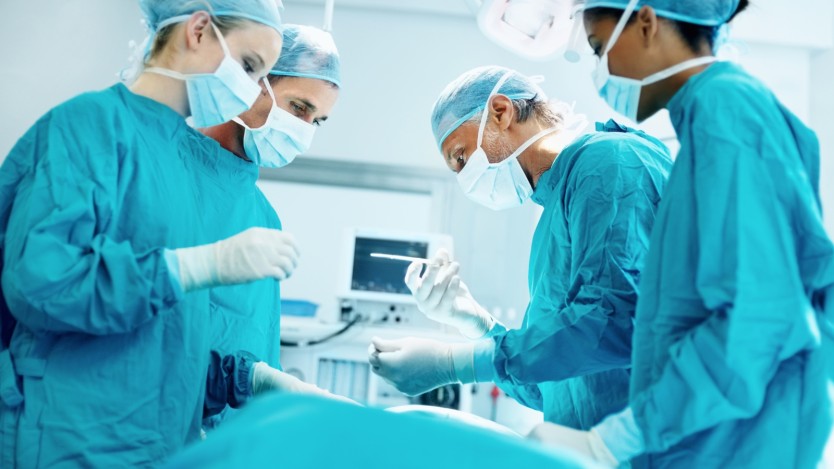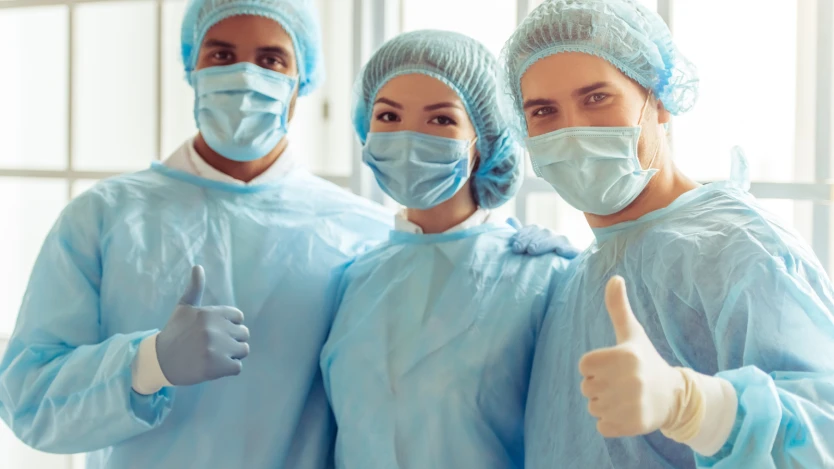What is testicular varicocele? Causes and treatments

- What is testicular varicocele?
- What are the main causes of testicular varicocele?
- What is the treatment for testicular varicocele?
What is testicular varicocele?
- Testicular varicocele consists of an accumulation of blood in the pampiniform plexus that feeds the testicle.
- The causes of testicular varicocele are varied, and it is considered a multifactorial pathology.
- The only solution to the problems associated with testicular varicocele is surgery.
A testicular varicocele is a collection of blood in a complex of veins in the testicles, which in severe cases will require varicocele repair surgery. The testicles are the male gonads responsible for the manufacture and maturation of sperm.
From the testicles, the spermatozoa and part of the seminal fluid are sent to the seminal vesicle (where the composition of the semen is completed with the addition of new substances) and from there to the urethra to be able to exit through the penis.
Like all living organs, the testicles must be composed of a vascular system made up of veins and arteries. This vascular system, in particular the venous system, forms a plexus or network called the pampiniform plexus that irrigates, nourishes and oxygenates the testicles and seminal tubules.

Free Assessment for Contracting Medical Services
Operarme’s Patient Service will contact you and solve all your questions on the medical service you need.
Varicocele, therefore, is an enlargement of this pampiniform plexus forming a mass or lump in one or two of the testicles in males, similar to the varicose veins that occur in the legs of women. The health problems of patients suffering from testicular varicocele, especially in moderate and severe stages, are related to sterility and pain caused by the enlarged mass within the scrotal pouch.
Statistically, it has been determined that 15-20% of the adolescent and young adult population has some degree of testicular varicocele. Of these, 40% of men with testicular varicocele will develop male infertility that may prevent them from reproducing.
What are the main causes of testicular varicocele?
There is no definitive, single, consensus aetiology to explain the cause or origin of testicular varicocele. This is why testicular varicocele is considered to be a multifactorial disease, i.e. with multiple causes.
A significant fact that allows theories about the origin of varicoceles to be put forward is that 90% of them are generally left testicular varicoceles. Hence, three theories are the most supported by the scientific community:
- The first refers to the absence of venous valves in the left testicular vein which would allow a venous reflux that would form the varicose veins that make up what we call varicocele.
- A second theory refers to the length of the left testicular vein which, as it flows higher up, into the left renal vein, is longer and therefore has greater blood pressure, which could cause greater difficulty for the passage of venous blood and thus trigger the varicocele.
- A third theory involves compression of the left testicular vein by the superior mesenteric artery and the abdominal aorta. This situation causes greater difficulty for the venous return of the left spermatic vein and is one of the possible causes of the greater frequency of varicocele in the left testicle.

More recent research found that patients with varicocele have an overexpression of an anti-apoptotic protein (Bcl-2) in testicular veins.
The concept of apoptotic means, in medical terms, the initiation of a chain reaction within the cells that ends in the elimination of the cell. This protein causes an increase in the calibre of the testicular veins and makes it more difficult for blood to flow through them in situations where venous return is difficult.
This greater difficulty could lead to the accumulation of venous blood in the pampiniform plexus, which is one of the main causes of testicular varicocele formation.
What is the treatment for testicular varicocele?
The definitive treatment for testicular varicocele remains clearly and definitively surgical intervention. There are a number of different surgical interventions to treat a testicular varicocele, each of which is more appropriate for a certain type of patient.

The indications for testicular varicocele surgery are quite clear, although they must always be studied in the context of each patient and their individual peculiarities.
The main indications for surgical intervention for testicular varicocele are as follows:
- Testicular pain due to the presence of a varicocele.
- Cases in which a grade III varicocele is present even if it is not painful.
- When the testicle on the side of the varicocele is smaller than normal.
- In cases where there is a bilateral testicular varicocele.
- When the varicocele is in an adolescent with an altered spermiogram, i.e. when an alteration in the quantity and quality of spermatozoa is observed that may justify the onset of sterility.
When the patient meets at least one of the above indications, surgical intervention for repair and removal of the testicular varicocele will be recommended.

Do you need varicocele surgery?
Request a free and immediate appointment with our specialists in Urology
Medical disclaimer: All the published content in Operarme is intended to disseminate reliable medical information to the general public, and is reviewed by healthcare professionals. In any case should this information be used to perform a diagnosis, indicate a treatment, or replace the medical assessment of a professional in a face to face consultation. Find more information in the links below:


